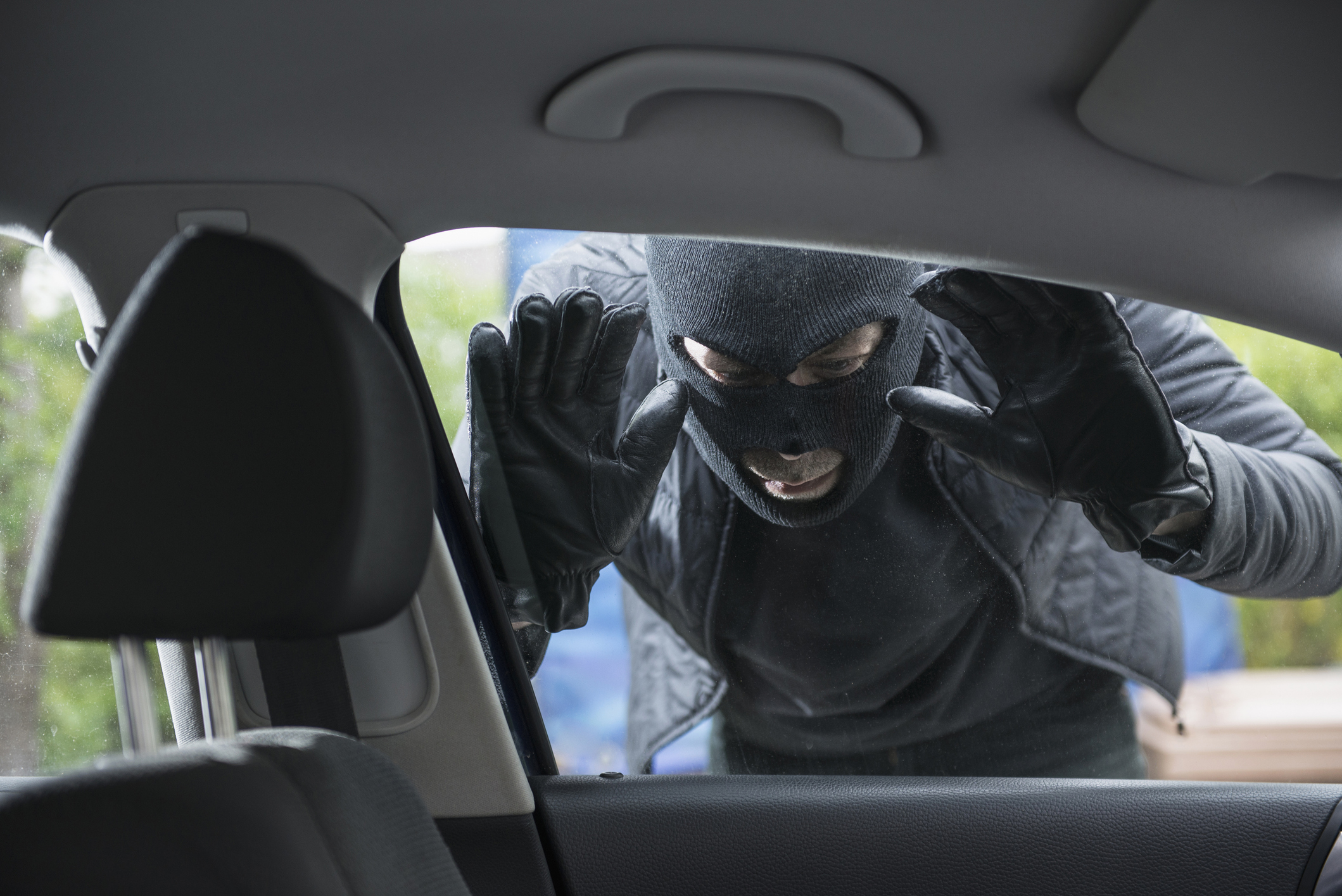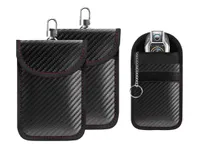My Car Was Stolen — Here’s What I Did and How You Can Protect Yourself
Don’t wait until it happens to you. Learn how to prepare for auto theft, protect your vehicle, and respond quickly if your car is stolen.


Profit and prosper with the best of Kiplinger's advice on investing, taxes, retirement, personal finance and much more. Delivered daily. Enter your email in the box and click Sign Me Up.
You are now subscribed
Your newsletter sign-up was successful
Want to add more newsletters?

Delivered daily
Kiplinger Today
Profit and prosper with the best of Kiplinger's advice on investing, taxes, retirement, personal finance and much more delivered daily. Smart money moves start here.

Sent five days a week
Kiplinger A Step Ahead
Get practical help to make better financial decisions in your everyday life, from spending to savings on top deals.

Delivered daily
Kiplinger Closing Bell
Get today's biggest financial and investing headlines delivered to your inbox every day the U.S. stock market is open.

Sent twice a week
Kiplinger Adviser Intel
Financial pros across the country share best practices and fresh tactics to preserve and grow your wealth.

Delivered weekly
Kiplinger Tax Tips
Trim your federal and state tax bills with practical tax-planning and tax-cutting strategies.

Sent twice a week
Kiplinger Retirement Tips
Your twice-a-week guide to planning and enjoying a financially secure and richly rewarding retirement

Sent bimonthly.
Kiplinger Adviser Angle
Insights for advisers, wealth managers and other financial professionals.

Sent twice a week
Kiplinger Investing Weekly
Your twice-a-week roundup of promising stocks, funds, companies and industries you should consider, ones you should avoid, and why.

Sent weekly for six weeks
Kiplinger Invest for Retirement
Your step-by-step six-part series on how to invest for retirement, from devising a successful strategy to exactly which investments to choose.
In 2024, more than 850,000 vehicles were stolen, according to the National Insurance Crime Bureau (NICB).
This year, my car will be among 2025’s tally, as it was stolen recently.
There seems to have been a crime wave in my city, with at least four friends experiencing auto theft in the span of a few weeks. I was hesitant to share personal details online, but I decided that if my article can help even one person prevent a costly, stressful theft, then it’s worth it.
From just $107.88 $24.99 for Kiplinger Personal Finance
Become a smarter, better informed investor. Subscribe from just $107.88 $24.99, plus get up to 4 Special Issues

Sign up for Kiplinger’s Free Newsletters
Profit and prosper with the best of expert advice on investing, taxes, retirement, personal finance and more - straight to your e-mail.
Profit and prosper with the best of expert advice - straight to your e-mail.
Here’s what I learned from having my car stolen, and how you can try to keep it from happening to you.
Simple steps to reduce your risk of auto theft
When it comes to preventing car theft, some steps are obvious — such as not leaving your keys in the car or letting it run unattended on the street.
But others aren’t as well known. One of the simplest and most effective things you can do is buy a Faraday pouch or case for your key fob. This small $5 investment can block thieves from hacking your key signal.
In recent years, Kia and Hyundai models have been frequent targets of key fob hacking, and in 2023, they topped the list of most-stolen vehicles, according to the National Insurance Crime Bureau (NICB). Both automakers have taken steps to address the issue.
If you often forget to lock your car, a digital car key or a remote-locking app on your phone could be a helpful solution. Some apps and devices can even automatically lock your car when you walk away or move out of range, adding an extra layer of security.
Get two Faraday pouches designed with RFID signal-blocking technology to help shield your key fob from relay attacks and electronic theft. A simple, affordable way to boost your car’s security.
Anti-theft devices that help deter car thieves
Additionally, cars come with, or can be equipped with, a wide variety of anti-theft features. If your car doesn’t have any of these features, do some research to determine which ones you could add.
Some onboard anti-theft features include alarms and GPS trackers. An easy one to add yourself is a steering wheel lock. Some vehicles have immobilizers that prevent them from being hotwired, hood locks, battery disconnect switches and pedal locks.
If your car doesn’t have an onboard GPS tracker, hide an AirTag, Tile or other tracker inside the car to increase the chance of recovery. They cost about $20 and can make all the difference. This is often one of the first things police will ask about because it’s the best and easiest way to locate the vehicle.
Don’t forget to let your insurance company know that your car is equipped with anti-theft features because you might also qualify for a discount.
For those with an Apple device, Apple AirTags make it easy to track keys, bags or vehicles. This 4-pack helps you keep tabs on what matters most.
What your insurance covers if your car is stolen
Speaking of insurance, most auto policies offer little to no coverage for personal items stolen from your vehicle.
For example, if your car is stolen with your wedding ring inside, the ring likely won’t be covered unless it's protected under your home insurance or you've added extra coverage to your auto policy. That’s why it’s important to review your home insurance as well, since many policies cover personal belongings stolen from a car.
If you have a newer car, it might be worth considering general asset protection (GAP) insurance. Standard auto insurance only covers the car’s current market value — not what you still owe on your loan.
For example, if your insurer values your stolen car at $20,000 but you still owe $30,000, you’d be responsible for the $10,000 difference unless you have GAP coverage. Keep in mind that insurance adjusters often undervalue stolen vehicles, which makes GAP coverage even more important.
According to Car and Driver, GAP coverage averages $20 to $40 a year when added to an existing auto policy, depending on the insurer. You can also purchase it for a flat fee from a lender or dealership, usually for a few hundred dollars, but keep in mind, you’ll likely pay interest on that amount if it’s rolled into your loan.
It’s also a smart move to add rental reimbursement coverage to your auto policy. Many insurers offer this optional add-on to help cover transportation costs while you shop for a replacement vehicle. Just be aware there’s usually a daily cap.
For example, my insurer covered $40 per day — only half of what it actually cost to rent a car — but that coverage still saved me more than $1,000.
Explore some of today's best car insurance offers with the tool below, powered by Bankrate:
What to do immediately after your car is stolen
The number one thing to remember if your car is stolen is to report it immediately. Don’t wait. Here’s a list of all the entities you should notify:
- Police
- State DMV or equivalent agency (e.g., Secretary of State)
- Your lender or leasing company
- EZ-Pass or the operator of any other electronic toll collection device you might have
- Your insurance company — If you delay, your insurance claim could be denied
If your wallet was in the vehicle, don’t forget to contact your credit card companies, banks, etc. Let the DMV know your license was stolen, as well.
Final thoughts on theft recovery and prevention
If your car is stolen, it’s important to be patient and prepare to be frustrated. In many cases, police won’t do much beyond flagging the vehicle and plates as stolen.
However, in 2023, more than 85% of stolen vehicles were recovered, according to the NICB. As further incentive to report your vehicle stolen immediately, cars reported stolen in the first 24 hours had a 34% same-day recovery rate that year.
To improve the chances of recovering your stolen vehicle, fully cooperate with the police and provide as much detailed information as possible. Stay proactive by checking in regularly — law enforcement may not always notify you if your car is found, especially if it’s recovered in another county or state.
If you’re not getting support from your local police department, consider reaching out to county or state law enforcement. You can also contact local elected officials for help. A friend of mine, whose car was stolen and GPS-tracked shortly after mine, was able to get assistance from state authorities when city police wouldn’t act on the vehicle’s location.
Related Content
Profit and prosper with the best of Kiplinger's advice on investing, taxes, retirement, personal finance and much more. Delivered daily. Enter your email in the box and click Sign Me Up.

Jacob is the founder and CEO of ValueWalk. What started as a hobby 10 years ago turned into a well-known financial media empire focusing in particular on simplifying the opaque world of the hedge fund world. Before doing ValueWalk full time, Jacob worked as an equity analyst specializing in mid and small-cap stocks. Jacob also worked in business development for hedge funds. He lives with his wife and five children in New Jersey. Full Disclosure: Jacob only invests in broad-based ETFs and mutual funds to avoid any conflict of interest.
-
 Quiz: Do You Know How to Avoid the "Medigap Trap?"
Quiz: Do You Know How to Avoid the "Medigap Trap?"Quiz Test your basic knowledge of the "Medigap Trap" in our quick quiz.
-
 5 Top Tax-Efficient Mutual Funds for Smarter Investing
5 Top Tax-Efficient Mutual Funds for Smarter InvestingMutual funds are many things, but "tax-friendly" usually isn't one of them. These are the exceptions.
-
 AI Sparks Existential Crisis for Software Stocks
AI Sparks Existential Crisis for Software StocksThe Kiplinger Letter Fears that SaaS subscription software could be rendered obsolete by artificial intelligence make investors jittery.
-
 One of the Most Powerful Wealth-Building Moves a Woman Can Make: A Midcareer Pivot
One of the Most Powerful Wealth-Building Moves a Woman Can Make: A Midcareer PivotIf it feels like you can't sustain what you're doing for the next 20 years, it's time for an honest look at what's draining you and what energizes you.
-
 I'm a Wealth Adviser Obsessed With Mahjong: Here Are 8 Ways It Can Teach Us How to Manage Our Money
I'm a Wealth Adviser Obsessed With Mahjong: Here Are 8 Ways It Can Teach Us How to Manage Our MoneyThis increasingly popular Chinese game can teach us not only how to help manage our money but also how important it is to connect with other people.
-
 Looking for a Financial Book That Won't Put Your Young Adult to Sleep? This One Makes 'Cents'
Looking for a Financial Book That Won't Put Your Young Adult to Sleep? This One Makes 'Cents'"Wealth Your Way" by Cosmo DeStefano offers a highly accessible guide for young adults and their parents on building wealth through simple, consistent habits.
-
 My Spouse and I Are Saving Money for a Down Payment on a House. Which Savings Account is the Best Way to Reach Our Goal?
My Spouse and I Are Saving Money for a Down Payment on a House. Which Savings Account is the Best Way to Reach Our Goal?Learn how timing matters when it comes to choosing the right account.
-
 We're 78 and Want to Use Our 2026 RMD to Treat Our Kids and Grandkids to a Vacation. How Should We Approach This?
We're 78 and Want to Use Our 2026 RMD to Treat Our Kids and Grandkids to a Vacation. How Should We Approach This?An extended family vacation can be a fun and bonding experience if planned well. Here are tips from travel experts.
-
 My First $1 Million: Retired From Real Estate, 75, San Francisco
My First $1 Million: Retired From Real Estate, 75, San FranciscoEver wonder how someone who's made a million dollars or more did it? Kiplinger's My First $1 Million series uncovers the answers.
-
 To Love, Honor and Make Financial Decisions as Equal Partners
To Love, Honor and Make Financial Decisions as Equal PartnersEnsuring both partners are engaged in financial decisions isn't just about fairness — it's a risk-management strategy that protects against costly crises.
-
 Top 5 Career Lessons From the 2026 Winter Olympics (So Far)
Top 5 Career Lessons From the 2026 Winter Olympics (So Far)Five lessons to learn from the 2026 Winter Olympics for your career and finances.

